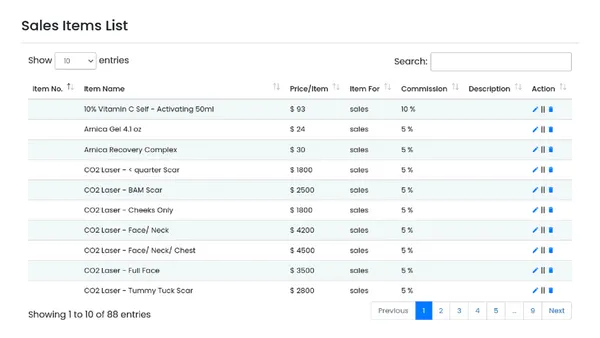Clinic Management System
ERP System to manage a clinic, patient billing and surgical / general procedures
Client
Barrett Plastic Surgery
Date
February 10, 2023
Categories
Python ERP 3rdParty Integrations
Clinic Management System
Streamlining Healthcare Operations
As healthcare providers strive to improve patient care and streamline operations, a clinic management system can be a valuable tool. A clinic management system is a software application that helps healthcare providers manage various aspects of running a clinic, including patient records, appointments, billing, and procedures. In this white paper, we will explore the benefits of a clinic management system and how it can help healthcare providers improve patient care and streamline operations.
Benefits of a Clinic Management System
A clinic management system offers a number of benefits for healthcare providers, including:
- Improved patient care: With a clinic management system, healthcare providers have access to comprehensive patient records and can easily track patient appointments, procedures, and treatment plans. This can help providers provide better care and improve patient outcomes.
- Streamlined operations: A clinic management system can help healthcare providers streamline various aspects of running a clinic, including appointment scheduling, billing, and procedure management. This can help providers save time and reduce errors, allowing them to focus on patient care.
- Enhanced security: A clinic management system can help healthcare providers protect sensitive patient data by providing secure storage and access to records. This can help prevent data breaches and maintain patient privacy.
- Increased efficiency: A clinic management system can help healthcare providers optimize their workflow and improve efficiency by automating various tasks and providing real-time data and analytics.
Features of a Clinic Management System

A clinic management system typically includes a number of features to help healthcare providers manage their clinic, including:
- Patient records management: A clinic management system should provide a comprehensive and secure way to store and access patient records, including medical history, treatment plans, and test results.
- Appointment scheduling and management: A clinic management system should allow healthcare providers to schedule and manage appointments, including patient reminders and cancellations.
Billing and payment processing: A clinic management system should provide a way to track patient billing and payments, including insurance coverage and copays.
Procedure management: A clinic management system should allow healthcare providers to manage surgical and general procedures, including scheduling, tracking, and billing.
Reporting and analytics: A clinic management system should provide real-time data and analytics to help healthcare providers track performance and identify areas for improvement.


Billing and payment processing: A clinic management system should provide a way to track patient billing and payments, including insurance coverage and copays.
Procedure management: A clinic management system should allow healthcare providers to manage surgical and general procedures, including scheduling, tracking, and billing.
Reporting and analytics: A clinic management system should provide real-time data and analytics to help healthcare providers track performance and identify areas for improvement.
Conclusion
A clinic management system can be a valuable tool for healthcare providers looking to improve patient care and streamline operations. By providing comprehensive patient records, appointment scheduling and management, billing and payment processing, procedure management, and reporting and analytics, a clinic management system can help healthcare providers optimize their workflow and increase efficiency.








